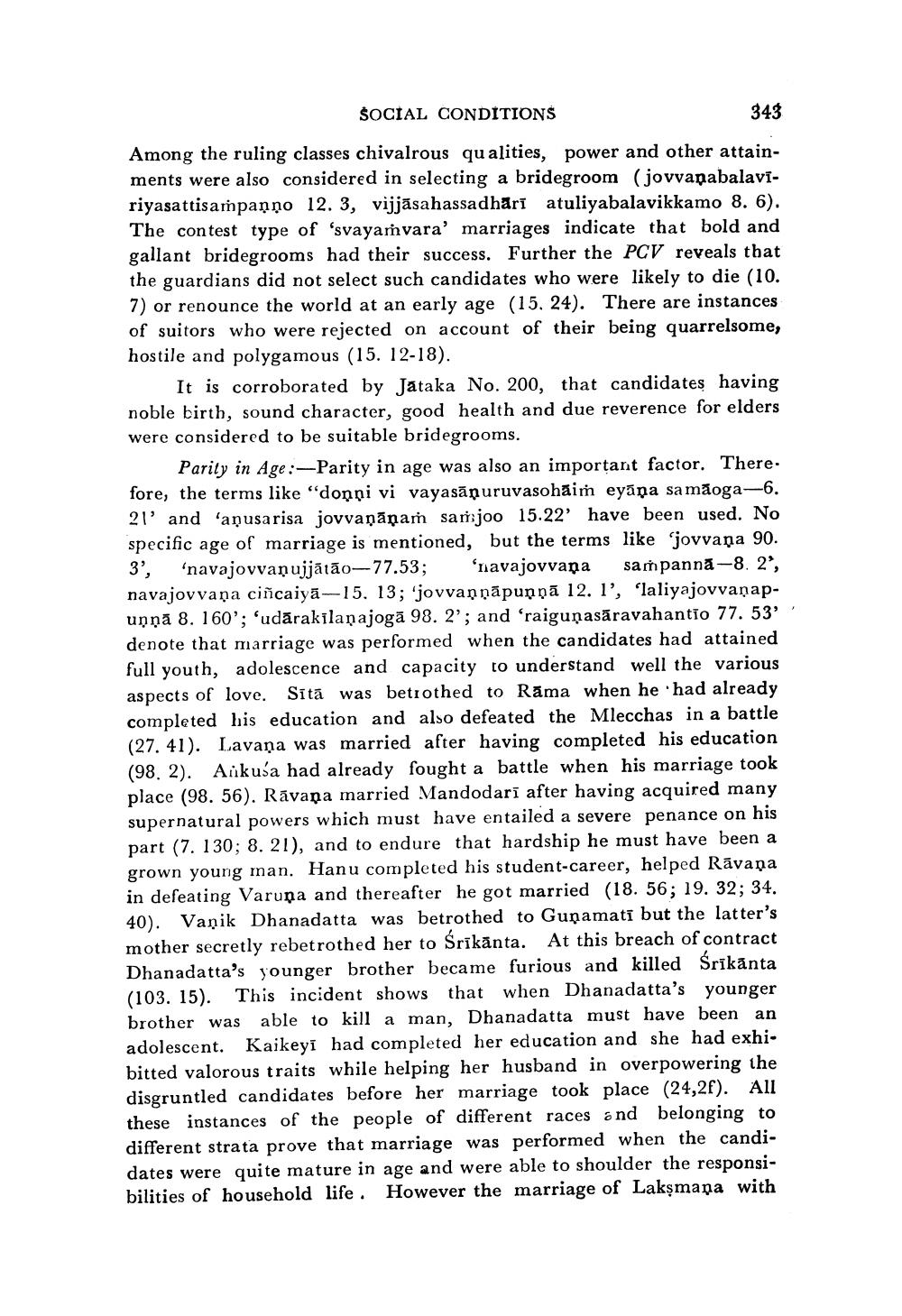________________
SOCIAL CONDITIONS
343
Among the ruling classes chivalrous qualities, power and other attainments were also considered in selecting a bridegroom (jovvapabalaviriyasattisampaņņo 12.3, vijjāsahassadhari atuliyabalavikkamo 8. 6). The contest type of 'svayamvara' marriages indicate that bold and gallant bridegrooms had their success. Further the PCV reveals that the guardians did not select such candidates who were likely to die (10. 7) or renounce the world at an early age (15. 24). There are instances of suitors who were rejected on account of their being quarrelsome, hostile and polygamous (15. 12-18).
It is corroborated by Jataka No. 200, that candidates having noble birth, sound character, good health and due reverence for elders were considered to be suitable bridegrooms.
Parily in Age :-Parity in age was also an important factor. There. fore, the terms like "donni vi vayasānuruvasohaim eyāņa sa mãoga-6. 21' and 'aņusarisa jovvaņānam sarisjoo 15.22' have been used. No specific age of marriage is mentioned, but the terms like jovvana 90. 3', 'navajovvanujjātão-77.53; 'navajovvana sampannā -8. 2', navajovvana ciñcaiyā-15. 13; 'jovvannāpuņpā 12. l', 'laliyajovvanapuņņā 8. 160'; 'udārakilanajogā 98. 2'; and 'raiguņasāravahantio 77. 53' denote that marriage was performed when the candidates had attained full youth, adolescence and capacity to understand well the various aspects of love. Sitā was betrothed to Rāma when he had already completed his education and also defeated the Mlecchas in a battle (27. 41). Lavaṇa was married after having completed his education (98. 2). Aukuba had already fought a battle when his marriage took place (98. 56). Rāvana married Mandodarī after having acquired many supernatural powers which must have entailed a severe penance on his part (7. 130; 8. 21), and to endure that hardship he must have been a grown young man. Hanu completed his student-career, helped Rāvaņa in defeating Varuna and thereafter he got married (18. 56; 19. 32; 34. 40). Vanik Dhanadatta was betrothed to Guņamati but the latter's mother secretly rebetrothed her to Śrīkānta. At this breach of contract Dhanadatta's younger brother became furious and killed Śrīkānta (103. 15). This incident shows that when Dhanadatta's younger brother was able to kill a man, Dhanadatta must have been an adolescent. Kaikeyi had completed her education and she had exhibitted valorous traits while helping her husband in overpowering the disgruntled candidates before her marriage took place (24,28). All these instances of the people of different races and belonging to different strata prove that marriage was performed when the candidates were quite mature in age and were able to shoulder the responsibilities of household life. However the marriage of Lakşmapa with




